Filter by
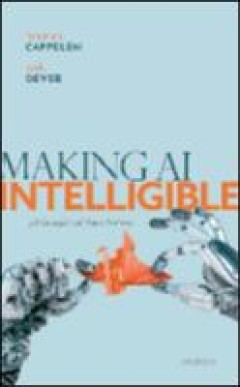
Making ai intelligible: philosophical foundations
Can humans and artificial intelligences share concepts and communicate? One aim of Making AI Intelligible is to show that philosophical work on the metaphysics of meaning can help answer these questions. Cappelen and Dever use the externalist tradition in philosophy of to create models of how AIs and humans can understand each other. In doing so, they also show ways in which that philosophical …
- Edition
- 1.
- ISBN/ISSN
- 9780192894724
- Collation
- viii, 175p.
- Series Title
- -
- Call Number
- 004.019 CAP m
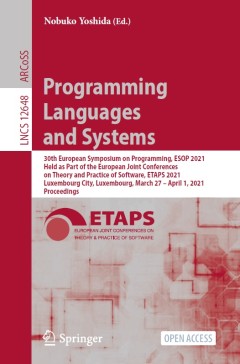
Programming languages and systems : 30th European Symposium on Programming, E…
This open access book constitutes the proceedings of the 30th European Symposium on Programming, ESOP 2021, which was held during March 27 until April 1, 2021, as part of the European Joint Conferences on Theory and Practice of Software, ETAPS 2021. The conference was planned to take place in Luxembourg and changed to an online format due to the COVID-19 pandemic. The 24 papers included in t…
- Edition
- -
- ISBN/ISSN
- 9783030720193
- Collation
- xii, 692p. : ill.
- Series Title
- -
- Call Number
- 005.13 PRO p

The sounds of English theory and practice for latin American speakers
do you speak English? Most people ask this question when they want to know whether you can communicate in this language. By doing it they evince the widespread tendency to equate our ability to speak with our overall communicative competence. Paradoxically, for most EFL and ESL learners, speaking is the most challenging skill and the last they get to develop to the full. Latin American students…
- Edition
- -
- ISBN/ISSN
- 9789588943534
- Collation
- 103 p.
- Series Title
- -
- Call Number
- 421.55 OLA t
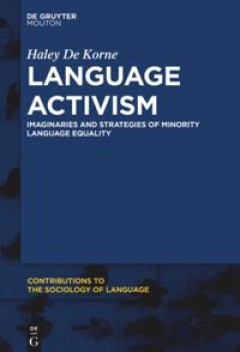
Language activism : imaginaries and strategies of minority language equality
While top-down policies and declarations have yet to establish equal status and opportunities for speakers of all languages in practice, activists and advocates at local levels are playing an increasingly significant role in the creation of new social imaginaries and practices in multilingual contexts. This volume describes how social actors across multiple domains contribute to the elusive goa…
- Edition
- -
- ISBN/ISSN
- 9781501511561
- Collation
- XV, 243 p.
- Series Title
- Volume 114 in the series Contributions to the Sociology of Language [CSL]
- Call Number
- 305.7 DE l
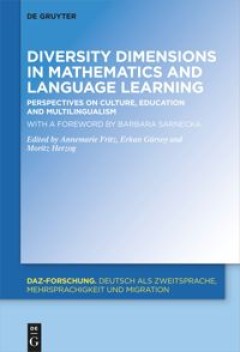
Diversity dimensions in mathematics and language learning: perspectives on cu…
Extensive research is available on language acquisition and the acquisition of mathematical skills in early childhood. But more recently, research has turned to the question of the influence of specific language aspects on acquisition of mathematical skills. This anthology combines current findings and theories from various disciplines such as (neuro-)psychology, linguistics, didactics and anth…
- Edition
- -
- ISBN/ISSN
- 9783110661941
- Collation
- XV, 417 p.
- Series Title
- -
- Call Number
- 370 DIV d
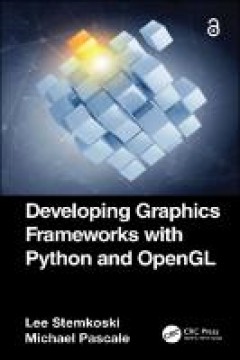
Developing graphics frameworks with python and openGL
Developing Graphics Frameworks with Python and OpenGL shows you how to create software for rendering complete three-dimensional scenes. The authors explain the foundational theoretical concepts as well as the practical programming techniques that will enable you to create your own animated and interactive computer-generated worlds. You will learn how to combine the power of OpenGL, the most wid…
- Edition
- -
- ISBN/ISSN
- 9781003181378
- Collation
- IX, 334 p.
- Series Title
- -
- Call Number
- 006.6 LEE d
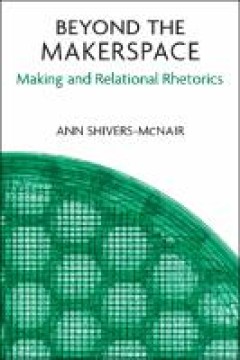
Beyond the makerspace: making and relational rhetorics
Makerspaces—local workshops that offer access to and training on fabrication technologies, often with a focus on creativity, education, and entrepreneurship—proliferated in the 2010s, popping up in cities across the world. Beyond the Makerspace is a longitudinal, ethnographically informed study of a particular Seattle makerspace that begins in 2015 and ends with the closing of the space in …
- Edition
- -
- ISBN/ISSN
- -
- Collation
- IX, 148 p.
- Series Title
- Sweetland Digital Rhetoric Collaborative,
- Call Number
- 428.00712 SHI b
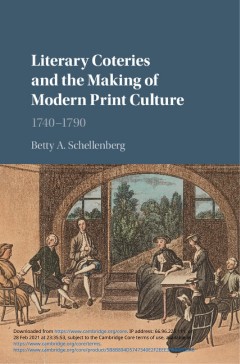
Literary coteries and the making of modern print culture, 1740-1790
Literary Coteries and the Making of Modern Print Culture offers the first study of manuscript-producing coteries as an integral element of eighteenth-century Britain's literary culture. As a corrective to literary histories assuming that the dominance of print meant the demise of a vital scribal culture, the book profiles four interrelated and influential coteries, focusing on each group's depl…
- Edition
- -
- ISBN/ISSN
- 9781316423202
- Collation
- xii, 308p. : ill.
- Series Title
- -
- Call Number
- 820.9006 SCH l
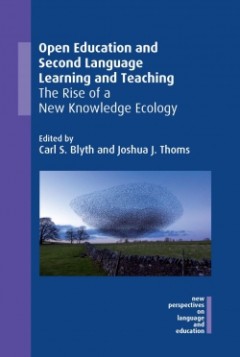
Open education and second language learning and teaching : the rise of a new …
This book is open access under a CC BY ND licence. This book contextualizes open education in foreign language (FL) learning and teaching; fills a gap in the research by exploring aspects of open second language learning and teaching across a range of educational contexts; and illustrates new ways of creating freely shared FL materials.
- Edition
- -
- ISBN/ISSN
- 9781800411005
- Collation
- XI, 271 p.
- Series Title
- -
- Call Number
- 418.0071 OPE o
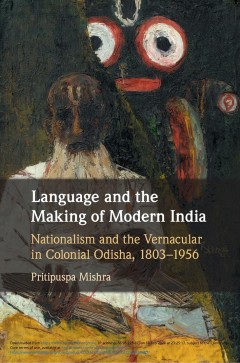
Language and the making of modern India : nationalism and the vernacular in c…
Through an examination of the creation of the first linguistically organized province in India, Odisha, Pritipuspa Mishra explores the ways regional languages came to serve as the most acceptable registers of difference in post-colonial India. She argues that rather than disrupting the rise and spread of All-India nationalism, regional linguistic nationalism enabled and deepened the reach of na…
- Edition
- -
- ISBN/ISSN
- 9781108591263
- Collation
- x, 247p. : ill.
- Series Title
- -
- Call Number
- 409.54133 MIS l
 Computer Science, Information & General Works
Computer Science, Information & General Works  Philosophy & Psychology
Philosophy & Psychology  Religion
Religion  Social Sciences
Social Sciences  Language
Language  Pure Science
Pure Science  Applied Sciences
Applied Sciences  Art & Recreation
Art & Recreation  Literature
Literature  History & Geography
History & Geography